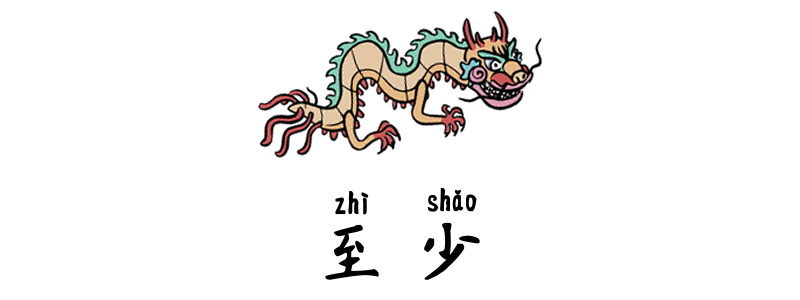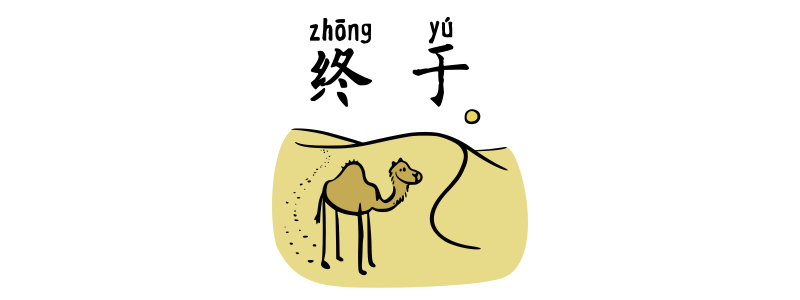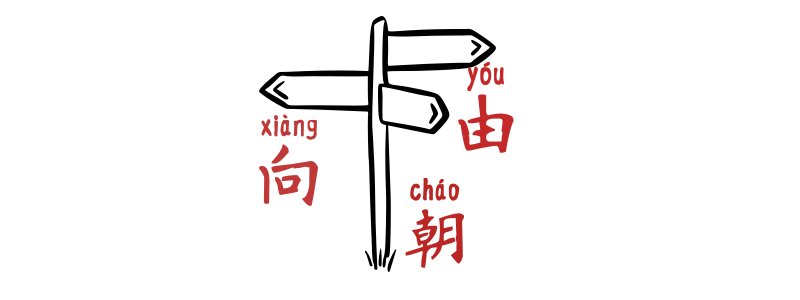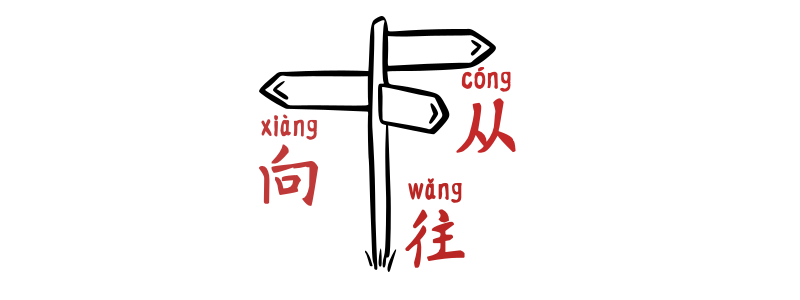咖啡 kāfēi 美式měishì咖啡kāfēi美式měishì咖啡kāfēi Americano 🔊아메리카노 – アメリカーノ 拿鐵nátiě拿铁nátiě or 拿堤nátí拿堤nátí Latte 🔊라떼 – ラテ 摩卡mókǎ摩卡mókǎ Mocha 🔊모카 – モカ 焦糖jiāotáng瑪奇朵mǎqíduǒ焦糖jiāotáng玛奇朵mǎqíduǒ Carmel Macchiato 🔊카라멜 마끼아또 – キャラメル マキアー 卡布奇諾qiǎbùqínuò卡布奇诺qiǎbùqínuò Cappuccino 🔊 카푸치노 – カプチーノ 茶 chá 紅茶hóngchá红茶hóngchá Black tea 🔊홍차 – 紅茶 綠茶lǜchá绿茶lǜchá Green tea 🔊녹차 – 緑茶 奶茶nǎichá奶茶nǎichá Milk tea 🔊밀크티 – ミルクティー 烏龍茶wūlóngchá乌龙茶wūlóngchá Oolong…
Author: tiffany
“According to” in Chinese 1 – ànzhào
Grammar Point:按照 ànzhào is a Chinese preposition often used to indicate following a certain method, guideline, or pattern. It conveys the idea of “following according to” or “in accordance with.” Structure 按照 ànzhào + a prescribed method, rule, or guideline You can use 按 àn on its own, to make the sentence more formal. 按照ànzhào你的nǐde意見yìjiàn,…
Probably in Chinese – Dàgài
Grammar Point:The phrase 大概 dàgài is used in Chinese to express a sense of uncertainty or probability. It is commonly used to convey the idea that something might be the case but isn’t certain. Structure S + 大概 dàgài + V 你nǐ大概dàgài明天míngtiān8 點diǎn打dǎ給gěi我wǒ你nǐ大概dàgài明天míngtiān8 点diǎn打dǎ给gěi我wǒYou’ll probably call me around 8 o’clock tomorrow. 昨天zuótiān的de派對pàiduì大概dàgài有yǒu3 成chéng的de外國人wàiguórén昨天zuótiān的de派对pàiduì大概dàgài有yǒu3 成chéng的de外国人wàiguórénYesterday’s party…
“Since” in Chinese – Zìcóng
Grammar Point:自從从 zìcóng is a Chinese grammar structure used to indicate the starting point of an action or a state and emphasize the continuity or change that has occurred since that point. It’s similar to the English phrase “since” or “ever since.” Structure 自從/自从 + Starting Point + Verb/Action It can be followed by phrases…
At the least – zhìshǎo
Grammar Point:至少 zhìshǎo is a Chinese adverb that is commonly used to express the minimum or lowest quantity or degree of something. It indicates the smallest amount or level required or expected. Structure S + 至少 + V 我們wǒmen至少zhìshǎo需要xūyào五wǔ個ge人rén參加cānjiā這個zhège活動huódòng我们wǒmen至少zhìshǎo需要xūyào五wǔ个ge人rén参加cānjiā这个zhège活动huódòngWe need at least five people to participate in this event. 他tā至少zhìshǎo應該yīnggāi打dǎ個ge電話diànhuà告訴gàosù我wǒ他tā至少zhìshǎo应该yīnggāi打dǎ个ge电话diànhuà告诉gàosu我wǒHe should at least call me…
Typhoon Related Chinese
颱風/台风 táifēng Taiwan is prone to being affected by typhoons, especially during the typhoon season, which typically runs from June to October. We experience an average of about 3 to 4 typhoons making landfall each year. 天氣預報/天气预报 tiānqì yùbào 天氣預報天气预报 tiānqì yùbào translates to “weather forecast” in English. It refers to the prediction and reporting…
“Finally” in Chinese 1 – zhōngyú
Grammar Point:終於终于 zhōngyú is a commonly used Chinese adverb that expresses the meaning of “finally” or “at last.” It is used to indicate that something anticipated or expected has happened after a long wait, effort, or delay. Structure S + 終於于 + Verb or Verb Phrase + 了 It is often used with past tense…
Express opinions with 来说 láishuō
Grammar Point:The phrase “對对 duì…來說来说 láishuō ” is a structure in Chinese that allows speakers to express their opinions or judgments about various topics, highlighting their subjective perspective on the matter at hand. Structure 對对 duì + S + 來說来说 láishuō 對duì台灣人Táiwānrén來說láishuō, 英文yīngwén發音fāyīn真的zhēnde很hěn難nán对duì台湾人Táiwānrén来说láishuō, 英文yīngwén发音fāyīn真的zhēnde很hěn难nánFor Taiwanese people, English pronunciation is really difficult. 對duì我wǒ來說láishuō, 教jiào中文zhōngwén是shì一件yíjiàn有yǒu趣qù的de事shì对duì我wǒ来说láishuō, 教jiào中文zhōngwén是shì一件yíjiàn有yǒu趣qù的de事儿shìrFrom my…
由 yóu, 朝 cháo, and 向 xiàng in Chinese
Grammar Point:All three of these, 向 xiàng, 朝 cháo, and 由 yóu can be used to indicate direction or position in Chinese. However, they have slightly different nuances and usages: 向 xiàng It is used to indicate a specific direction or the target of an action. It can also be used to express “towards” or…
向 xiàng, 往 wǎng, and 從/从 cóng in Chinese
Grammar Point:All three of these, 向 xiàng, 往 wǎng, and 從从 cóng can be used to indicate direction or position in Chinese. However, they have slightly different nuances and usages: 向 xiàng It is used to indicate a specific direction or the target of an action. It can also be used to express “towards” or…







